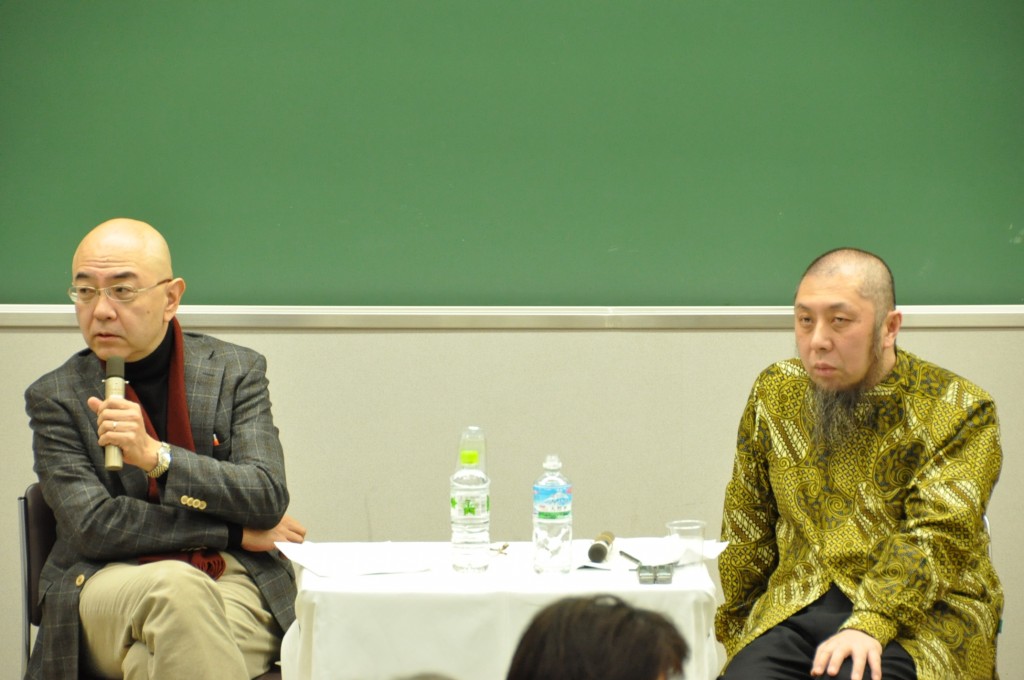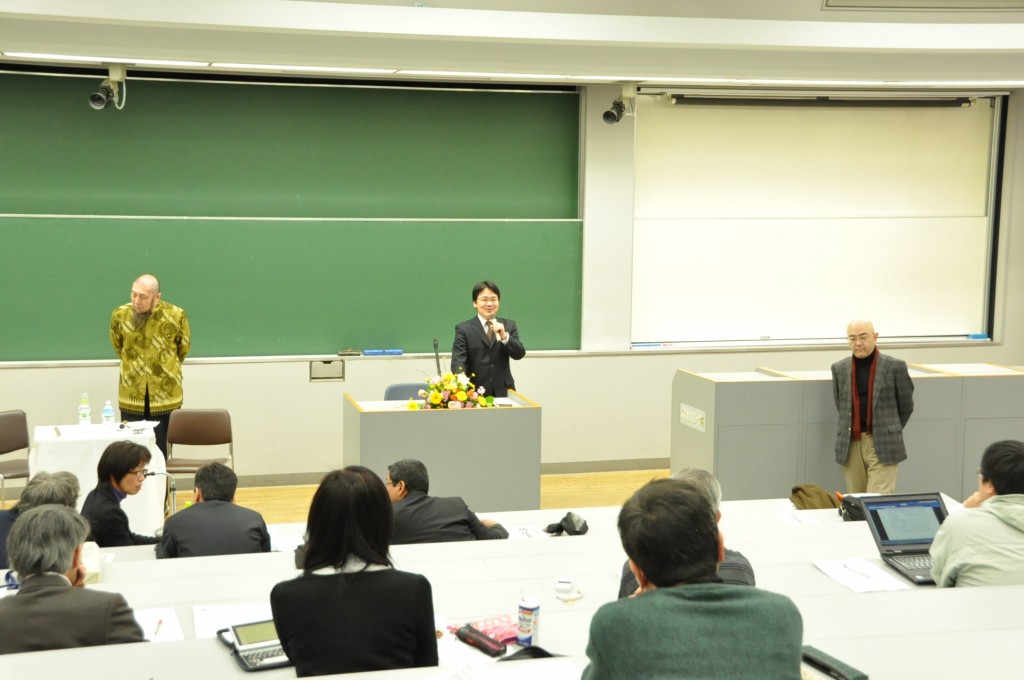Center for Interdisciplinary Study of Monotheistic Religions(CISMOR)Doshisha University
> Public Lectures > The Islamic Caliphate between East and West – Historical reflections and contemporary considerationsPublic Lectures
Public Lecture
The Islamic Caliphate between East and West – Historical reflections and contemporary considerations
| Date: |
2011/03/12 13:00 − 15:10 |
|---|---|
| Place: | Room M1, Meitoku-kan 1F, Imadegawa Campus, Doshisha University |
| Lecture: | Reza PANKHURST, Researcher, The London School of Economics (LSE) |
| Summary: | |
|
Originally, Mr. Reza Pankhurst was supposed to be present at the lecture meeting and deliver the lecture himself, but the earthquake that hit Japan on March 2011 caused his plane to make an emergency landing and rendered him unable to attend the meeting. Therefore, the interpreter translated his full paper into Japanese as it had been submitted to the meeting in advance. The lecture first outlined the historical contributions made by the Caliphate—an Islamic system of governance established after the death of the Prophet Muhammad—in the Islamic regions in the East and West, and reviewed the political discourse on the Caliphate developed after the abolishment of this system by Mustafa Kemal Atatürk. Then, the lecture discussed roles that the Caliphate could assume against the backdrop of today’s power relationships among various parts of the world, including Europe and the U.S., from a geopolitical point of view. According to Mr. Pankhurst, the Caliphate is characterized by the following four points: (1) strong assimilative power and expansionism; (2) selection of a caliph by a consensus of the community; (3) the rule of law; and (4) an integrated power structure with a single caliph at the top of the hierarchy. Historically, the Caliphate is said to have embodied the idea of multiculturalism and contributed to the development of regional civilizations extensively, from Spain to the west and China to the east. Yet, Mustafa Kemal Atatürk, the first president of the Republic of Turkey, officially abolished the Caliphate in 1924 to promote the modernization of the country. Since then, the Caliphate has not been considered a significant part of politics. However, we are now seeing the spread of a discourse that criticizes the Caliphate and places emphasis on its threat, especially in Europe and the U.S. In the opinion of the lecturer, what really threatens the Western world is the revival of the Caliphate, as it could help Islamic countries (mainly those in the Middle East) break free from the control of imperialist powers and achieve true independence and freedom. That is to say, the Western countries see the Caliphate as an obstacle to their geopolitical purpose: to maintain the current “international order” as led by the U.S. The growing emphasis on the threat of the Caliphate also indicates that the likelihood of its revival is increasing. Mr. Pankhurst presented statistical data to prove growing expectations for the revival of the Caliphate in the Islamic world and introduced the activities of the Liberation Party (Hizb al-Tahrir) and al-Murābitūn, which are working positively toward Caliphate revival. Mr. Pankhurst argued that the Caliphate is the best system of governance for today’s Muslim political community for the following reasons. First, the nation-state system is no longer capable of meeting the needs of the world, in light of the growing complexity of identities and the accelerated movement of labor and capital across borders. Rather, we need a super-national community that can implement multicultural policy measures. Second, people are calling for independent government elected by themselves and the rule of law, as shown by the recent popular uprisings in Middle Eastern countries. As a system of governance, the Caliphate can perfectly satisfy these conditions. Then, Professor Ko Nakata and Professor Masanori Naito made comments regarding the lecture. Professor Nakata positively evaluated the Caliphate as an ideal system of governance for the community in the post-nation-state era and said that the benefits of the Caliphate could extend beyond the Islamic world. Professor Naito spoke about the reality of multiculturalism in the Western world and compared it with the multicultural aspect of the Caliphate as a system of governance. A question-and-answer session open to the floor then followed, where discussion took place on the similarities between the Caliphate and the “imperial” ruling system, as well as to what extent the minority groups (such as al-Murābitūn and the Islamic Liberation Party) introduced in the lecture could represent the global Muslim population of 1.5 billion. This lecture meeting, which dealt with the highly political topic of the “Caliphate,” resulted in more than just a deepening of the “understanding of Islam.” Both the lecturer and the commentators shared a keen interest in the world order that would emerge after the fall of the capitalist system and the nation-state system that dominate the world today, and recognized the great significance of the Caliphate as a potential component of a new world order. Yohei Matsuyama (Ph.D. student, Graduate School of Global Studies, Tokyo University of Foreign Studies) |
|
|
*This lecture will be given in English. *Admission Free, No Reservation Necessary. Co-hosted by: Research Center for Peace and Development in Afghanistan, Doshisha University/ School of Theology, Doshisha University |
|
|
Program(Japanese) |
|

